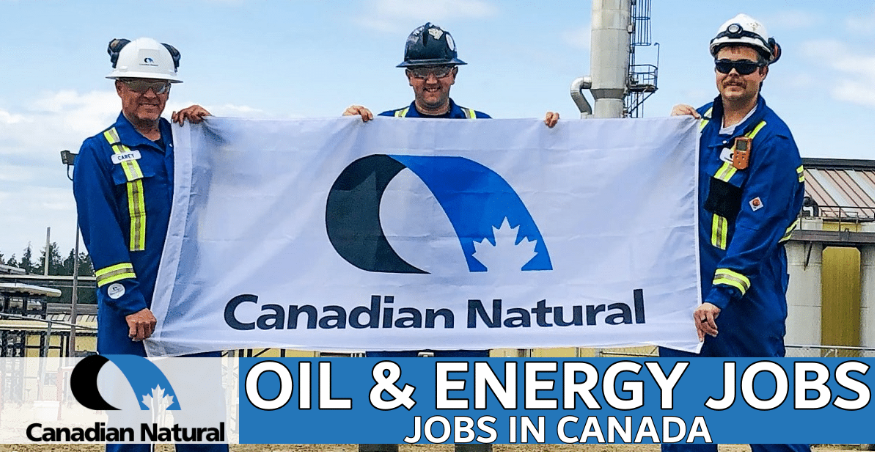Entry-Level Oil and Gas Jobs in Canada. If you’re looking for exciting career opportunities in the energy sector, the oil and gas industry in Canada offers a plethora of entry-level positions that can serve as the perfect launchpad for your professional journey. Canada’s oil and gas sector is known for its robustness and promising prospects, making it an attractive choice for aspiring individuals seeking growth, development, and job security. In this article, we will explore various entry-level job opportunities in the Canadian oil and gas industry, helping you understand the roles available, qualifications required, and tips to get started.
About Precision Drilling
Employer Name : Precision Drilling
Position : Multiple
Number Of Vacancies : 50+
Salary : $38–$52 an hour
Education : Bachelor Degree/Diploma/High School
Location : Canada
Table of Contents
- Understanding the Canadian Oil and Gas Industry
- Overview of the Energy Sector
- Importance of Oil and Gas in Canada’s Economy
- Entry-Level Jobs in the Oil and Gas Industry
- Drilling Rig Jobs
- Field Technicians
- Oil and Gas Labourers
- Equipment Operators
- Pipeline Assistants
- Qualifications and Skills for Entry-Level Positions
- Educational Requirements
- Industry Certifications
- Soft Skills
- How to Land Your First Job
- Networking and Industry Events
- Tailoring Your Resume
- Preparing for Interviews
- Career Growth and Opportunities
- Advancement Paths
- Additional Training and Education
- Work-Life Balance and Compensation
- Understanding the Work Environment
- Entry-Level Salaries
- Challenges and Rewards in the Industry
- Physical Demands and Safety
- Job Satisfaction and Fulfillment
- The Future of Oil and Gas in Canada
- Sustainability and Environmental Concerns
- Technological Advancements and Opportunities
Entry-Level Jobs in the Oil and Gas Industry
Drilling Rig Jobs
Working on a drilling rig is one of the most sought-after entry-level positions in the oil and gas industry. As a rig worker, you will be responsible for various tasks, such as assembling and dismantling drilling equipment, ensuring equipment maintenance, and assisting with drilling operations. This physically demanding role offers competitive salaries and excellent opportunities for career growth.
Field Technicians
Field technicians play a vital role in the industry, supporting engineers and scientists in the field. Their responsibilities include conducting tests, gathering data, and assisting with field operations. A background in science or engineering is beneficial for this role, but some companies provide on-the-job training.
Oil and Gas Labourers
As an oil and gas Labourers, you will be involved in various manual tasks at drilling sites and refineries. These tasks may include loading and unloading equipment, cleaning work areas, and assisting skilled workers. While formal education may not be mandatory, a strong work ethic and a willingness to learn are essential.
Equipment Operators
Equipment operators are responsible for handling heavy machinery, such as excavators, bulldozers, and cranes. They play a crucial role in ensuring efficient operations and are required to have proper certifications and training to operate the equipment safely.
Pipeline Assistants
Pipeline assistants work on the construction and maintenance of oil and gas pipelines. Their tasks include inspecting pipelines, performing repairs, and assisting with installations. This role demands physical fitness and attention to detail.
Qualifications and Skills for Entry-Level Positions
Educational Requirements
While many entry-level positions in the oil and gas industry do not require formal education, having a high school diploma or GED is advantageous. Certain specialized roles may require technical certifications or post-secondary education in relevant fields.
Industry Certifications
Obtaining industry certifications can significantly enhance your employability in the oil and gas sector. Certifications related to safety procedures, equipment operation, and environmental practices are highly regarded by employers.
Soft Skills
In addition to technical qualifications, possessing essential soft skills is crucial for thriving in the oil and gas industry. Effective communication, teamwork, problem-solving, and adaptability are qualities that employers value highly.
How to Land Your First Job
Networking and Industry Events
Building connections within the industry can open doors to job opportunities. Attend networking events, career fairs, and conferences to meet potential employers and industry professionals.
Tailoring Your Resume
Customize your resume to highlight relevant skills and experiences that align with the job you’re applying for. Emphasize any internships, volunteering, or part-time work that demonstrates your commitment to the industry.
Preparing for Interviews
Before your interview, research the company and familiarize yourself with their operations. Practice answering common interview questions to showcase your enthusiasm and knowledge about the industry.
How To Apply For Oil & Gas Jobs
- Click On Applying Button to Apply For This Job.

Career Growth and Opportunities
Advancement Paths
Entry-level jobs often serve as stepping stones to higher positions in the oil and gas sector. With dedication and continuous learning, you can progress to supervisory roles or specialize in specific areas of the industry.
Additional Training and Education
Investing in additional training and education can make you a valuable asset to employers. Consider pursuing certifications or diplomas to expand your skill set and increase your career prospects.
Work-Life Balance and Compensation
Understanding the Work Environment
The oil and gas industry can involve long hours and physically demanding work. However, companies are increasingly emphasizing work-life balance and employee well-being.
Entry-Level Salaries
While salaries vary depending on the job and location, entry-level positions in the oil and gas industry offer competitive pay, often accompanied by benefits such as health insurance and retirement plans.
Challenges and Rewards in the Industry
Physical Demands and Safety
Working in the oil and gas industry can be physically challenging, requiring workers to be in good health and follow strict safety protocols to mitigate risks.
Job Satisfaction and Fulfillment
Despite the challenges, the oil and gas industry offers a sense of accomplishment and fulfillment, particularly for those who enjoy working in dynamic and critical sectors.
The Future of Oil and Gas in Canada
Sustainability and Environmental Concerns
The industry is undergoing a transformation towards more sustainable practices. As an aspiring professional, you can contribute to innovative solutions and the adoption of eco-friendly technologies.
Technological Advancements and Opportunities
Advancements in technology, such as automation and artificial intelligence, are reshaping the industry, creating exciting opportunities for skilled workers to contribute to cutting-edge projects.
Conclusion
Embarking on a career in the Canadian oil and gas industry can be an enriching and rewarding experience. With a diverse range of entry-level positions available, there’s a suitable role for individuals from various backgrounds and skill sets. Remember to focus on building relevant qualifications, showcasing your passion for the industry, and making valuable connections. The energy sector holds immense potential for growth and development, and by taking the right steps, you can kickstart a successful and fulfilling career in this thriving industry.



